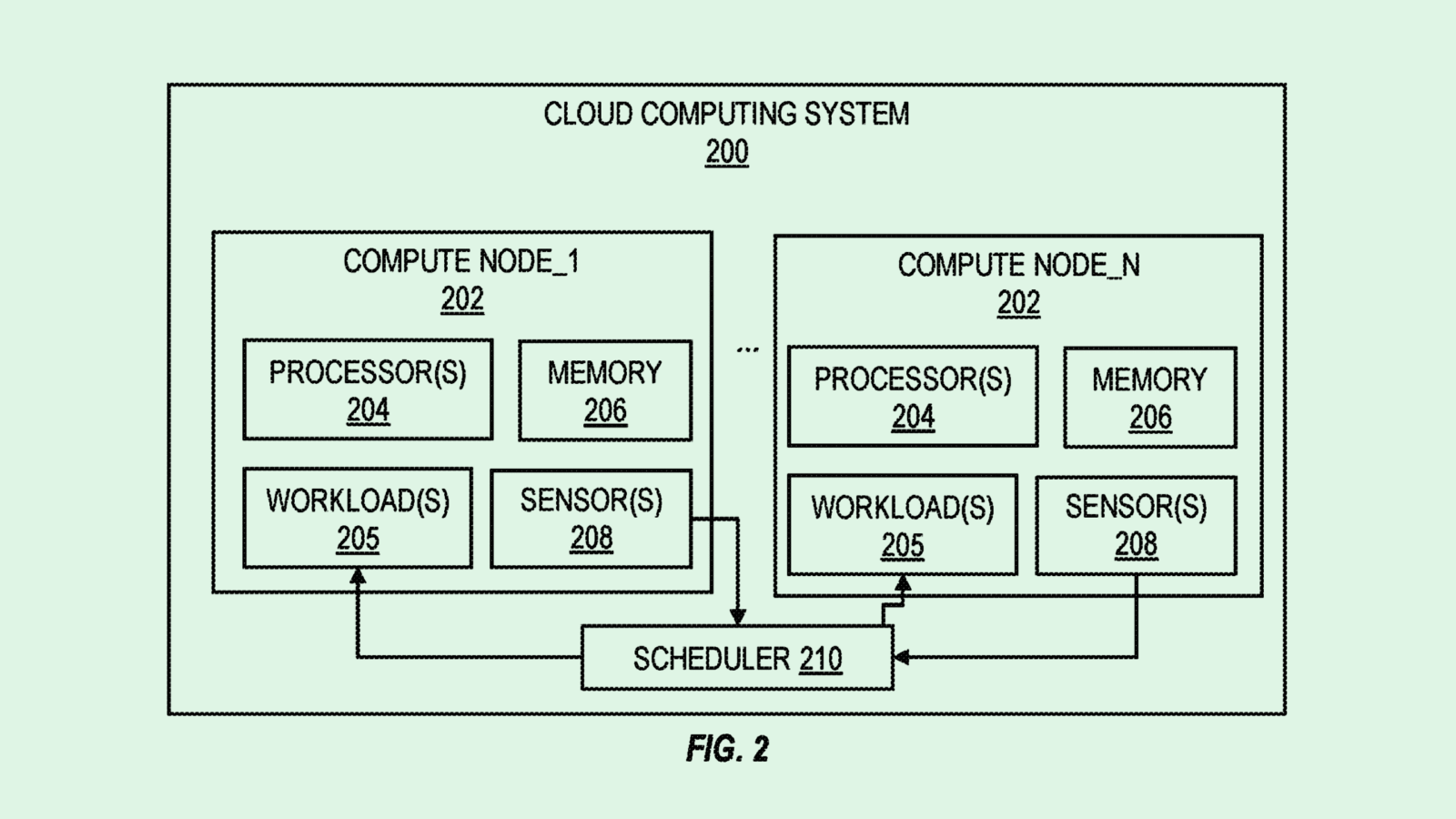Happy Thursday, and welcome to CIO Upside.
Today: The quantum market is starting to heat up, despite the fact that return on investment is a long, long way away. Plus: Layoffs are ramping up as AI agents get better; and IBM’s recent patent could keep data centers from getting overwhelmed.
Let’s take a look.
In Quantum Computing Investment, ‘The Race is On’

The quantum computing market is catching the eyes of Big Tech and investors. Do enterprises need to prepare?
On Monday, quantum computing firm Infleqtion agreed to go public in a merger with Churchill Capital Corp. X, a special public acquisition company, in a deal worth $1.8 billion. Additionally, quantum startup IQM announced last week that it raised $320 million in a round led by Ten Eleven Ventures to ramp up commercializing the tech.
These announcements follow a banner year for the quantum industry, with tech giants like Google, Amazon and Microsoft debuting their own quantum computing chips, and IBM and AMD partnering to develop so-called “quantum-centric supercomputers.”
Despite the excitement, the tech faces a number of roadblocks before it’s ready for the big leagues. However, discussions around quantum development have largely moved from whether quantum is possible at all to how it can scale:
- A lot of the recent movement in the quantum space has likely been spurred by the mad dash toward AI, Scott Likens, global chief AI engineer at PwC, told CIO Upside.
- “Massive AI investments have caused people to look at their compute infrastructure in general,” said Likens. “Quantum has always been that promise of much more computability. AI investments have caused people to start to look outside of traditional compute.”
- Investors also likely recognize the challenge that quantum research and development presents, said Brian Jackson, principal research director at Info-Tech Research Group.
“People understand that it will require a lot of R&D investment to unlock that potential and to transform it into something that could be commercialized technology,” said Jackson. “I think there’s a bit of a sense that the race is on.”
Firms keeping their eye on quantum are playing the “long game,” said Likens. For example, scooping up quantum talent while the market is nascent and strategizing for when the tech is available at scale is “preparing for something that no one does today,” he said.
Some companies may view it as a “brand play,” Jackson noted. “It is about wanting to be the first leading-edge company to bring a quantum advantage to the industry that you’re competing in.”
But quantum’s impact may be felt sooner than later. For example, its potential ability to completely shatter modern encryption practices, also known as “Q-Day,” said Likens, is something that enterprises should be preparing for now.
For businesses looking to stay ahead of the curve, Likens said, now’s the time to brush up on “basic quantum literacy.” That means putting together “pilot projects” for how your enterprise may leverage quantum, especially in industries such as material sciences, logistics and pharmaceuticals that stand to benefit the most from the technology.
“Understand the opportunities for when quantum is available at scale,” he said. “And understand, at the executive level, that this is not something that’s 20 or 30 years away. Moving the timeframe in and knowing the limits of what we have today, we do recommend.”
Salesforce Layoffs Add Fuel to AI Job-Automation Fire
![Salesforce founder and CEO Marc Benioff speaks during the grand opening of the Salesforce Tower, the tallest building in San Francisco, Calif., Tuesday, May 22, 2018. (Karl Mondon/Bay Area News Group/TNS) (Newscom TagID: krtphotoslive835493.jpg) [Photo via Newscom]](https://www.thedailyupside.com/wp-content/uploads/2025/09/krtphotoslive835493-scaled-1600x1067.jpg)
As agents become more powerful, tech giants might be choosing your AI coworkers over you.
Last week, Salesforce laid off roughly 4,000 employees from its customer support division while the company goes all-in on AI-powered automation. CEO Marc Benioff said the division “needs less heads” as AI agents become more capable of handling customer support tasks.
The move follows similar cuts by other large tech firms, including Microsoft, which slashed just over 40 employees this week, marking its fifth consecutive month of layoffs. Fintech firm Klarna and language app Duolingo also both reduced headcount in favor of AI.
As it stands, the jobs that are facing the highest impact are those involving “repetitive, rules-based tasks,” said Keith Spencer, career expert at AI resume service Resume Now:
- A recent survey conducted by Resume Now found that 44% of workers expect AI to automate at least some portion of their job by the end of the decade, with tasks like customer service, data entry and administrative support first up on the chopping block.
- “By contrast, roles that rely on creativity, complex problem-solving or emotional intelligence are harder to automate,” Spencer said. Jobs in healthcare, education and leadership, for example, are more insulated, as “empathy and nuanced judgment are central.”
The trend leaves many workers in a state of uncertainty, said Spencer, and “ignoring those fears risks disengagement and turnover.” Resume Now’s survey found that 89% of workers reported feeling concerned about job security. Workers reported fears around AI over-reliance, difficulty in reskilling, a lack of accountability for AI-driven decisions and workplace dehumanization and surveillance.
A lack of transparency from leadership “feeds anxiety and speculation,” said Spencer, as more than half surveyed said that their employers were only “somewhat transparent” about their AI plans. It’s why communication and AI training and upskilling the roles that AI can’t replicate are vital for both enterprises and workforces.
“Employers who involve workers early, explain how AI will change specific roles, and offer training to complement new tools can strengthen trust,” said Spencer.
And despite the hype, don’t assume that AI can do it all, he said. “AI is already reshaping jobs, but its capabilities are uneven,” Spencer noted. “Employers who assume AI can fully replace people will run into limitations.”
IBM Patent Could Rein In Power-Hungry Data Centers

AI is turning up the heat on data centers.
With tech giants spending billions on developing AI infrastructure, the development of this tech is projected to take a tremendous amount of power. IBM might be looking at ways to handle the digital workload more efficiently.
The company is seeking to patent a system for “energy-efficient deployment of workloads in cloud computing systems.” As the title implies, IBM’s tech aims to deploy tasks in cloud environments while using the minimum possible amount of energy.
“Current workload-scheduling algorithms that are used to deploy and migrate workloads in the cloud computing systems do not account for the energy efficiency of the placement of workloads within the cloud computing systems,” IBM said in the filing.
IBM’s tech monitors the capacity and power consumption of each server, and identifies which workloads fit best with which server, depending on how much power each task requires. The system will pick a handful of servers that could complete a given task, then simulate how much total energy would be consumed by running it on each server.
Along with considering how much energy is taken up by the task itself, the system will consider how much power is used booting up a server and how much power is used while it’s sitting idle. IBM’s tech then deploys the workload to the most optimal server.
The company’s filing adds to several inventions from tech firms that seek to regulate how much energy data centers consume. Nvidia, Microsoft, Intel and Google have all sought to patent similar energy management techniques. And as AI infrastructure investment from tech giants is projected to reach into the trillions, inventions like this could help temper these facilities’ hunger for power.
With cloud computing demand and data center development going nowhere but up, these tools are growing more necessary: Research from the International Energy Agency published in April projects that electricity demand from data centers globally could more than double by 2030, reaching around 945 terawatt-hours, more than the entire country of Japan.
Extra Upside
- Oracle Soars: Oracle’s shares rose 36% yesterday after blowing cloud earning expectations out of the water, adding $244 billion to its stock value.
- OpenAI Deal: OpenAI and Oracle reportedly inked a deal for the AI firm to purchase $300 billion in compute from the cloud provider over the next five years.
- Anthropic Out: Anthropic reported service outages on Wednesday impacting APIs, Console, and Claude.
CIO Upside is a publication of The Daily Upside. For any questions or comments, feel free to contact us at team@cio.thedailyupside.com.
